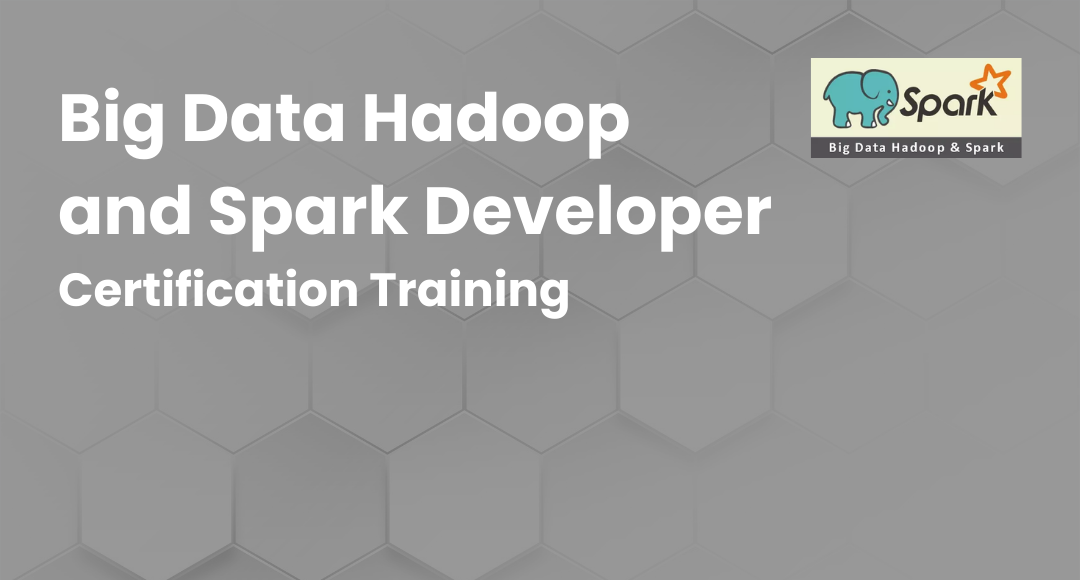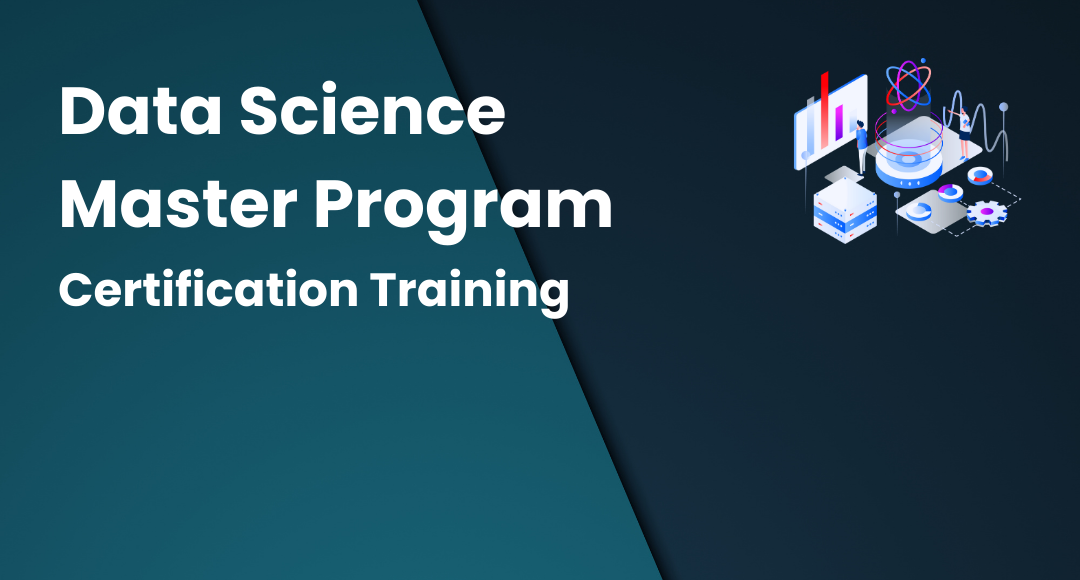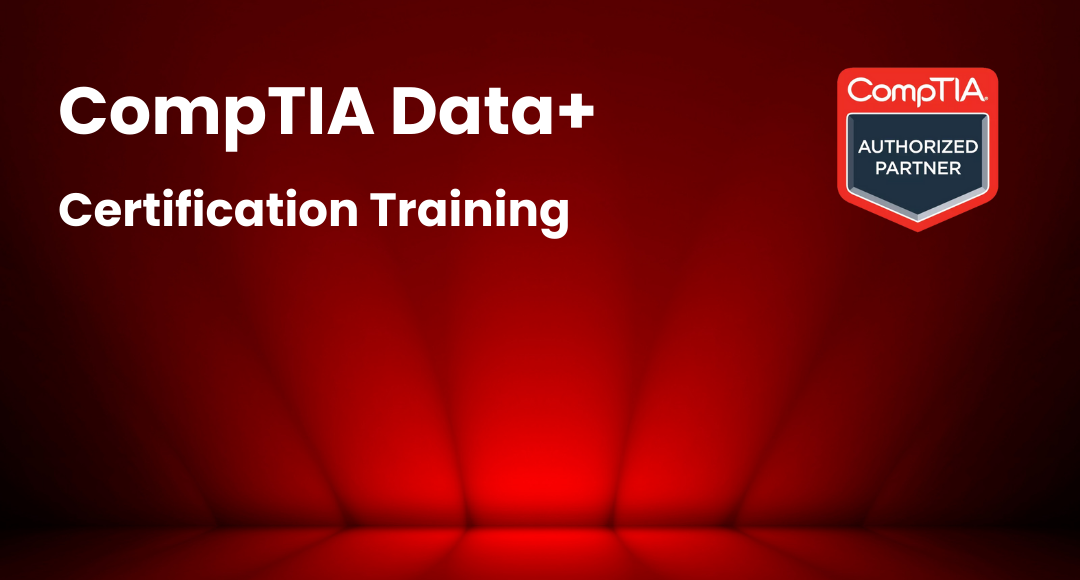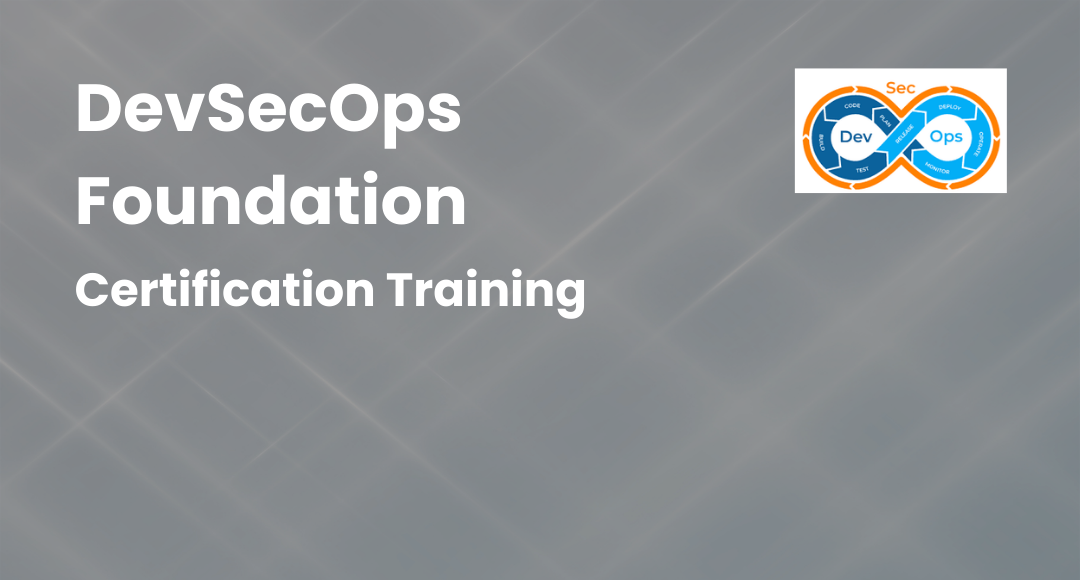DevOps Engineer - Career path, Job scope, and Certifications
-
 By Nandini
By Nandini
- Published on Aug 9 2024

Table of Contents
- How to Become a DevOps Engineer?
- What Is DevOps?
- Importance of the CI/CD domain
- What Is a DevOps Engineer?
- Roles and Responsibilities of DevOps Engineer
- What Are The Skills Required To Become A DevOps Engineer?
- Certification Requirements for a DevOps Engineer
- Does a DevOps Engineer need to know how to code?
- Salary of a DevOps Engineer
- Conclusion
How to Become a DevOps Engineer?
A DevOps engineer is a good career choice in 2026 as the demand for it is increasing considerably. The need for a skilled DevOps engineer is expanding within the market.
But there are still some misconceptions and confusion regarding this career choice. Well, let's dig into this article to clear your doubts and confusion regarding DevOps engineers.
In this technology-driven era where information and data are fed into computers, almost every company is implementing cloud services to maintain their working professional environment.
Learning DevOps is necessary if you are an aspirant with an IT background who aspires to be a part of the IT sector. Let's go from the basics to understand the career path of a DevOps engineer.
What Is DevOps?
Before we understand what and who is DevOps engineer let's know and understand the importance of DevOps. One should know the importance of DevOps to understand the role of DevOps engineers.
DevOps is defined as an approach or practice that bridges the gap or combines software development (Dev) and IT operations (op).
There isn't a universal definition for DevOps created by academics and practitioners other than its use to refer to the cross-functional combination. It is applicable in a different context, but it is mainly characterized by combination or shared ownership, which aims at the same goal.
With DevOps, organizations aim to develop an agile relationship between software and IT to create and release features and regular updates and incorporate feedback much more quickly than the traditional waterfall method.
It aims to provide effective and continuous service as promptly as possible. Eventually, this is applicable with utmost collaboration removing any barriers between two parties.
The benefits of such cooperation are fewer software fatalities and failures and less time consumption between fixes. DevOps is not easy to develop as it involves a lot of development, testing, and implementation of automated CI/ CD pipelines.
Importance of the CI/CD domain
Most people expand CI/CD as Continuous Integration and Continuous Delivery, respectively. These are two fundamental concepts required to develop DevOps.
These two concepts are fundamentally basic tools and approaches as this make the development of DevOps different and unique from traditional methodologies.
The conventional methods are time-consuming and outdated. In today's era where people have so little time, they require more advanced methodologies to save up their time and get the best quality service.
They are required to do one stage following up another, whereas DevOps gives the benefits of running these stages simultaneously within a short amount of time. In today's fast-paced era, it is a necessity rather than a luxury.
There are specific tools for DevOps engineers who are used to develop better applications and software. Following are some of the DevOps tools you need to know:
- Git and GitHub: These are required to manage source code. Git is a version control system required to manage your source code history, whereas GitHub is a cloud-based service to manage Git storage.
- Jenkins: It is an automation server used to build, test, and deploy software by developers worldwide. It assists in the formation of great CI/CD pipelines. Apart from Jenkins, Bamboo is another automation tool that is highly recommended for developers.
- Selenium: Selenium is an available tool used that automates web browsers and is mainly used for automation testing. It has a single interface that lets developers write test scripts programming like Java, C++, and Python.
- Docker: With the help of Docker, developers can bring their applications and ideas to life by building, developing, and running applications. It is a Software Containerization Platform that allows developers to conquer the complexity of app development. Kubernetes is also such a containerization application.
- Ansible: It is one of the simplest automates used for configuration, management, deployment, and continuous service. For configuration management, there are other tools available, namely puppet Enterprise and Chef.
- Nagios: These are referred to as monitoring software as it helps the developers to monitor and configure any issues and take immediate action to provide satisfactory results. Raygun is also monitoring software that is used widely.
- Jira and Tello are two project management tools unique to DevOps, but it is worth using as it would help the developers keep track of their projects. They can use it to supervise the project's progress according to the deadline and identify any fatalities which can improve. There are more DevOps engineer tools, but these are some famous tools widely used by developers.
What Is a DevOps Engineer?
A DevOps engineer is an IT professional who facilitates and processes automation throughout the software development cycle on CI/CD basis. They have to balance between coding to deployment and maintenance to upgrading. They understand and skill of various automation tools to develop digital pipelines, namely CI and CID pipelines.
Development teams and IT operation teams come together to bring out the best application with new features. Even if both these teams aim at the same goal, they both retain different skills. Developers are keen to add new features while the latter group thinks about preserving the application's stability.
If the DevOps role is about amalgamation and combining processes, DevOps engineers are needed for automation, application management, and maintenance. All these tasks are performed to understand the development cycle and practice, philosophy, and tools of development cycles. DevOps engineers are expected to work with IT staff, software developers, and operators to supervise and facilitate code releases or deployment.
Roles and Responsibilities of DevOps Engineer
DevOps Engineers have to take on a great many responsibilities on a day-to-day basis. The role of DevOps engineer includes such tasks:
- DevOps engineers are often the evangelist or preachers to lead and manage a team to implement DevOps. They are decision-makers responsible for who and how the project shall work to be successful.
They are required to make their colleagues aware of the management and deadline of the project. They are needed to tackle complex codes and scripting with development staff.
- A DevOps engineer is the one whose job is to ensure the successful release of a quality product. They are the ones to provide healthy collaboration and cooperation to design and improve IT infrastructure. They are the release manager in charge of managing quick releases.
- As a DevOps engineer, you have to unlock the achievement of automation and orchestration of tools. Apart from standard work, the task of a DevOps engineer is to manage automation to reduce time and lighten up your colleagues' load by developing useful software plugins.
- The DevOps approach aims for frequent deployment and testing sessions. They act as software testers required to develop and test codes.
Another primary job is to evaluate and develop a reliable and effective DevOps role, including performance testing and benchmarking.
- Day-to-day activities of DevOps include them to optimize release cycles. They are expected to reduce and minimize TTD (time to detect) errors and TTM (Time to minimize) errors in the process.
- There are types of DevOps engineers, such as security-focused DevOps or SecDevOps, responsible for monitoring and keeping the security center of products. It includes implementation, building infrastructure design, and release schedules.
There is broad scope in this field and various roles to play. There are multiple roles and titles to choose from being a DevOps engineer. Aspirants can look forward to positions such as QA lead, whose primary job is to ensure quality and state.
Also, they mainly apply Agile practices to QA and Operational teams to validate the deployment and development of software systems. SecDevOps engineer who is primarily responsible for security purposes, Automation expert whose job is to configure codes and troubleshooting issues, Software tester and Release manager.
There is also a cloud DevOps engineer. A professional cloud DevOps engineer's role is to balance the reliability and speed of the product. Also responsible for developing and executing operations.
Google DevOps aims to improve the reliability and velocity of the software. Principles and disciplines of SRE guide the performance in Google cloud (Also stands for Site reliability engineering).
However, the role of a DevOps engineer does not follow a linear path. Their profession can evolve from the backgrounds of other occupations. There might as well be some overlapping of job descriptions depending upon the organization you choose to work with in the future.
Full-stack DevOps engineers can run the entire application development, deployment and command the highest salary. At the same time, DevOps software engineers can deal with the production of devops software development and software engineering as they have multifaceted experience and background.
A DevOps support engineer is required to perform all sorts of tasks and methodologies. DevOps developers are employed to deploy, automate and configure management technology.
In contrast, development operation engineers are employed and tasked with observing and monitoring the functioning system and are required giving feedback and reports on the performance results. The DevOps networking engineer has to keep up with the automation trend as the technologies keep getting evolutionary.
What Are The Skills Required To Become A DevOps Engineer?
This broad field has a lot of scope and opportunities to provide. There are some common skills and traits which need to be the possession of every aspirant.
These skills and qualifications will add emphasis while seeking job opportunities and employment. Employers nowadays require these skills and DevOps experience for expertise:
- Candidates must have a vast and detailed background and knowledge of OS administration such as Linux, Microsoft Windows, Apple Mac OS, Google, etc.
- Candidates must have strong experience in automation and configuration management tools such as Puppet and Chef. It is necessary skill employers are seeking in DevOps engineers.
- A basic understanding of coding and scripting of common programming languages like PHP, Python, Perl, and Ruby is beneficial. A performance of Agile methodology would also help as it is conducive and applies beyond the software development team.
- Aspirants must know one of the major programming languages like Java or C++ to program and decode as these languages are pretty common and widely used in the IT industry.
- DevOps engineers are praised for their analytical skills and ability to identify, assess and integrate open source technologies and complex cloud services.
- Must have a strong background in IT hardware and operations. It will be highly considered if candidates have hands-on experience installing, monitoring, and evaluating servers, storage, and device networks.
These practices are usually regarded as vital as they are required for fault-tolerant and high availability and complex projects and operations.
- As a DevOps engineer, you will work primarily in teams unless you are freelancing. So you need to have supportive, collaborative, and cooperative skills is much needed as it would also lead you to success. Apart from working with a team, you are expected to deal with customers, so one must manage customers.
- Virtualization technologies are a must for any DevOps engineer. A robust baseline of visualization technologies and container technologies would add to your identity. VMware vSphere for VMs and tools like Docker are required to be practiced.
- As discussed earlier, the essential tools are vital to excel as a DevOps engineer. You have to acquire ideas on the contents and implement them. Tools like GitHub, Prometheus, and Jenkins are primarily used in such fields.
- You need to gain as much experience with IT tools and a diverse range of management tools and applications such as Cloudflare to deal with various projects and operations.
There are DevOps engineering training courses available online and offline for you to choose from within the list. This training would prove the credibility or accuracy of your workflow and methodologies.
The pieces of activity are the deciding factors to expedite your development, designing, and implementing skills. With the right skills, DevOps is unmatched and highly effective.
Suggested Read – DevOps Engineer Interview Questions and Answers 2026
Certification Requirements for a DevOps Engineer
Qualifications for DevOps engineers are as much required and essential as skills. To be a DevOps engineer, one needs to complete DevOps engineering courses such as computer science, technology, and Information technology.
Best certification for DevOps engineer from reputable credentials would add to your resume and command you a secure job. Formal education and DevOps engineer training are typically essential as they allow the candidates to practice the essential skills required for their job.
The DevOps engineer training courses might cost a little. Still, it is worth going for it as they provide essential practices such as continuous integration, coding, monitoring, observation, etc. But top DevOps engineer certifications from AWS or Azure certification in public cloud services are also considered necessary.
AWS Certified DevOps Engineer Professional
AWS Certified DevOps Engineer Professional certification exam helps empower an individual's skills to develop better business and terminology ideas. Most people ponder if AWS and DevOps are the same.
To put it more specifically, DevOps relies on the services provided by AWS for deployment and automation.
Azure DevOps Solution certification
Microsoft Azure produces varieties of protocols and working guidelines for DevOps working engineers. Azure devops expert
professionals help in saturating and optimizing various techniques and disciplines. It will form a networking sector and count the basic forms of an individual.
Full Stack DevOps Certification
It validates its candidates to acquire adequate skills and knowledge in cloud computing, data science, and programming languages like Python.
The critical skills covered by full-stack DevOps certifications are data analysis, data science, and data visualization. Also, major programming languages like Java and industry-relevant studying are offered to aspirants and graduates by full-stack DevOps.
Docker Certified Associate
It sharpens your skills as a practitioner and developer as it offers to strengthen your foundation and refine your skills in managing, developing, and implementing software and applications. It validates its candidates to operate required analytical tools and applications. After completing your Docker Associate Certification, you will gain ideas to grasp Docker and secure your position as a DevOps engineer.
Certified Kubernetes Administrator
Kubernetes is an open-source containerization application initially designed by Google. It is the most popular container orchestration tool widely used by developers worldwide in the IT sector.
Certified Kubernetes Administrator certification validates candidates through all domains, including application lifecycle management, installation, configuration and validation, networking, scheduling, security, cluster maintenance, core concepts, storage, and troubleshooting.
Puppet Professional Certification
This certification is used worldwide and more than 35,000 organizations use puppets. They are exposed to learn about data separation and external data sources.
The DevOps engineer certification path is divided and organized into three levels: Fundamentals, Associates, and Experts. You must complete through each level to get the best experience, knowledge, and practices to get the best position as a DevOps engineer. These are some of the top DevOps engineer certifications lists.
Most people spend hours pondering about the crucial necessities of having DevOps engineer certifications. One must be wondering why they have to hold a certificate, aren't the courses enough. Well, there are many advantages and benefits if you hold a certificate from outstanding credentials.
DevOps engineering can be a competitive occupation. The demand for such engineers is increasing, so employers are looking for skilled professionals. So holding a certificate will let you implement and develop continuous service.
The fact that you have attended a reputed credential would reflect on your CV or resume, which would secure you a stable position among other candidates and negotiate the amount of salary. It would define your skills and experience and make you seem more promising than other candidates.
Moreover, these Certification credentials are known for refining their candidates. They would provide you more than enough knowledge, hands-on skills, experience, practice to know a detailed understanding of the roles and responsibilities of a DevOps engineer. These credentials, without a doubt, will provide their best service to excel in the field as a DevOps engineer.
The major DevOps engineering practices include monitoring, deployment, continuous testing and integration, agile project management, observability, and continuous reporting and feedback. These are the major practices required, along with the certification for employment as a DevOps engineer.
Does a DevOps Engineer need to know how to code?
They might not need to directly work on your product code which is the job of software engineers. They create solutions to save time and continuously develop and operate to release quality products.
It also involves them building plugins and automating critical tasks that validate the deployment and development of software systems. It involves quite a bit of scripting and coding. So mid-level coding scripting of any primary programming language like Java or C++ would do the job. we also have python for devops, but a full-fledged coding tutorial is not required to become a DevOps engineer.
Salary of a DevOps Engineer
DevOps engineer is one of the most secure careers instability and finance aspects. With its increasing demand, it is no surprise that DevOps engineers bring in so much. However, salaries can vary depending on geographical distribution, skills, qualifications, experience, company, etc.
Various surveys conclude that the average salary of a DevOps engineer is more than $120,000. The pay grade of DevOps engineers is said to be one of the highest-paid even in the IT domain.
Even junior DevOps engineers tend to get around or more than $70,000, whereas senior DevOps engineers bring in more due to their more experience in the field. The more you excel in this industry, the more you will earn.
It is estimated that the salary of a DevOps specialist is more than $130,000 per year, whose primary job is to govern the policies and practices, implement strategy, and process to release. It is said that the salary and revenue of DevOps engineers are increasing per year, and it is expected to increase in the coming future.
Companies hiring for DevOps are Amazon, Netflix, Sony, TATA consultancy services, Adobe, Nordstrom, Etsy, Walmart, etc. Best companies for DevOps engineers are illustration examples of DevOps engineers. However, the companies' pay scales might differ from one another.
Such big enterprises offer a handsome amount to their employees given they are skilled and experienced enough to carry out their roles.
Suggested Course: DevOps Certification Training offered by Sprintzeal
How to Create a DevOps Team?
Now you have the idea of who and how a DevOps engineer comes to its being. But there must be a lingering question in your mind about the procedure for creating a DevOps team. The structure of a DevOps team might not be the same for various companies.
The structure and organization depend on various factors such as the number of products the group is working on, the number of people working in the team, technical leadership, and the operational team.
A DevOps team needs to be successful as it provides benefits such as handling problems faster and rapid iteration and deployment with fast feedback allowing a faster workflow. To lead a successful DevOps team, smart hiring of employees is essential. Only one with potential and dedication can be part of or lead a successful operation.
The DevOps teams comprise Development and IT operations teams with test engineers working on databases, servers, security teams, etc. Each team is planned and modeled according to the product.
A typical DevOps team consists of a DevOps evangelist, release manager, automation architect, experience assurance professionals, and software developers with their unique roles and responsibilities. All these positions have their own set of responsibilities to facilitate the ideals of DevOps teams.
If you're a DevOps administrator, you need to blend your hard technical skills with communication skills to get across the idea of your plans and solutions to another team member. A great leader can only lead a successful team. They need to apply their management skills to conquer any quest to level up along with their teammates.
As mentioned earlier, the DevOps team is a combination of software engineers and IT operational teams. But that's not the only factor that will assist in future functions.
Often, DevOps teams fall apart because of unresolved data management conflicts, fall short of their aim and goal, or other missed opportunities and obstacles.
A diverse group of people would not let it happen; instead, the information from different backgrounds and experiences would fit into DevOps structures.
Last but not least, communication. Promote collaboration and chatting with other team members no matter what your position is in the group. A healthy conversation would lead the members to be together.
They can share their ideas and creations to formulate a solution. A cooperative and collaborative environment would make the work more manageable despite coming from different professional backgrounds and different activities and tasks per person.
For a successful DevOps team, you might need and want to hire people with special interests in their areas rather than hiring a team of generalists. A successful DevOps team would improve job satisfaction levels in systems along with saving time on operations.
Conclusion
Those willing to embrace the culture of a combination of tools and operations have to acquire adequate knowledge and experience to excel in this field. A DevOps engineer goes a linear path and builds new skills on top of new skills.
It is essential to understand the essentials and basics of a DevOps engineer before becoming one. To gain a detailed and focused view, one needs to be focused on their practice and knowledge.
To get full details about the DevOps certification training in the online, classroom and live virtual mode of study, reach us at Click Here or chat with course experts to get instant help.
Popular Programs
Certified Machine Learning Expert (CMLE) DS2040
Live Virtual Training
- 4.7 (51 + Ratings)
- 52k + Learners
Certified Data Science Developer (CDSD) DS2020
Live Virtual Training
- 4.1 (650 + Ratings)
- 9k + Learners
Certified Data Scientist Finance (CDSFIN) DS2130
Live Virtual Training
- 4.2 (650 + Ratings)
- 28k + Learners
Trending Posts
Top DevOps Interview Questions and Answers 2026
Last updated on Oct 25 2024
Top Database Interview Questions and Answers
Last updated on Mar 8 2024
What Is a Data Science Course? How to Get Into Data Science From Non-Tech Background
Last updated on Dec 24 2025
What is Data Visualization? A Comprehensive Guide
Last updated on Apr 8 2024
What is Big Data – Types, Trends and Future Explained
Last updated on Feb 2 2024
Data Science vs Data Analytics vs Big Data
Last updated on Jul 5 2023
Categories
- Other 81
- Agile Management 49
- Cloud Computing 58
- Project Management 175
- Data Science 70
- Business Management 89
- Digital Marketing 88
- IT Service Management 36
- Programming Language 61
- AI and Machine Learning 94
- IT Security 113
- Quality Management 78
- IT Hardware and Networking 28
- Microsoft Program 5
- Workplace Skill Building 15
- Risk Management 10
- Information Security 8
- Leadership and Management 10
- Corporate Training and Development 1
Trending Now
Big Data Uses Explained with Examples
ArticleData Visualization - Top Benefits and Tools
ArticleWhat is Big Data – Types, Trends and Future Explained
ArticleData Science vs Data Analytics vs Big Data
ArticleBig Data Guide – Explaining all Aspects 2026 (Update)
ArticleData Science Guide 2026
ArticleData Science Interview Questions and Answers 2026 (UPDATED)
ArticlePower BI Interview Questions and Answers (UPDATED)
ArticleData Analyst Interview Questions and Answers 2026
ArticleApache Spark Interview Questions and Answers 2026
ArticleTop Hadoop Interview Questions and Answers 2026 (UPDATED)
ArticleTop DevOps Interview Questions and Answers 2026
ArticleTop Selenium Interview Questions and Answers 2026
ArticleWhy Choose Data Science for Career
ArticleDevOps Engineer Interview Questions - Best of 2026
ArticleSAS Interview Questions and Answers in 2026
ArticleHow to Become a Data Scientist - 2026 Guide
ArticleHow to Become a Data Analyst
ArticleBig Data Project Ideas Guide 2026
ArticleWhat Is Data Encryption - Types, Algorithms, Techniques & Methods
ArticleHow to Find the Length of List in Python?
ArticleHadoop Framework Guide
ArticleWhat is Hadoop – Understanding the Framework, Modules, Ecosystem, and Uses
ArticleBig Data Certifications in 2026
ArticleHadoop Architecture Guide 101
ArticleData Collection Methods Explained
ArticleData Collection Tools - Top List of Cutting-Edge Tools for Data Excellence
ArticleWhat is DevSecOps and its Importance
ArticleTop 10 Big Data Analytics Tools 2026
ArticleKafka vs Spark - Comparison Guide
ArticleDevOps Career Guide 2026
ArticleData Processing - A Beginner's Guide
ArticleData Structures Interview Questions
ArticleData Analysis guide
ArticleData Integration Tools and their Types in 2026
ArticleWhat is Data Integration? - A Beginner's Guide
ArticleData Analysis Tools and Trends for 2026
ebookA Brief Guide to Python data structures
ArticleWhat Is Splunk? A Brief Guide To Understanding Splunk For Beginners
ArticleBig Data Engineer Salary and Job Trends in 2026
ArticleWhat is Big Data Analytics? - A Beginner's Guide
ArticleData Analyst vs Data Scientist - Key Differences
ArticleTop DBMS Interview Questions and Answers
ArticleTop Database Interview Questions and Answers
ArticlePower BI Career Opportunities in 2026 - Explore Trending Career Options
ArticleCareer Opportunities in Data Science: Explore Top Career Options in 2026
ArticleCareer Path for Data Analyst Explained
ArticleCareer Paths in Data Analytics: Guide to Advance in Your Career
ArticleA Comprehensive Guide to Thriving Career Paths for Data Scientists
ArticleWhat is Data Visualization? A Comprehensive Guide
ArticleData Visualization Strategy and its Importance
ArticleTop 10 Best Data Science Frameworks: For Organizations
ArticleData Science Frameworks: A Complete Guide
ArticleFundamentals of Data Visualization Explained
Article15 Best Python Frameworks for Data Science in 2026
ArticleTop 10 Data Visualization Tips for Clear Communication
ArticleHow to Create Data Visualizations in Excel: A Brief Guide
ebookHow to repair a crashed MySQL table?
ArticleTop PySpark Interview Questions and Answers for 2026
Article5 Popular Data Science Careers That Are in Demand
ArticleTop Data Warehouse Interview Questions to Crack in 2026
ArticleData Modeling Interview Questions and Answers 2026
ArticleWhat Is a Data Scientist? Salary, Skills, and How to Become One
ArticleTop Companies Hiring for Data Science: Explore Data Scientist Jobs
ArticleWhat Is a Data Science Course? How to Get Into Data Science From Non-Tech Background
ArticleGeneralized Linear Models: Understanding GLMs and Their Applications
ArticleSQL vs NoSQL: Understanding the Key Differences and Use Cases
ArticlePower BI vs Tableau : Which BI tool is best for you?
ArticleTop 10 Data Science and Analytics Certifications to Boost Your Career in 2026
Article














